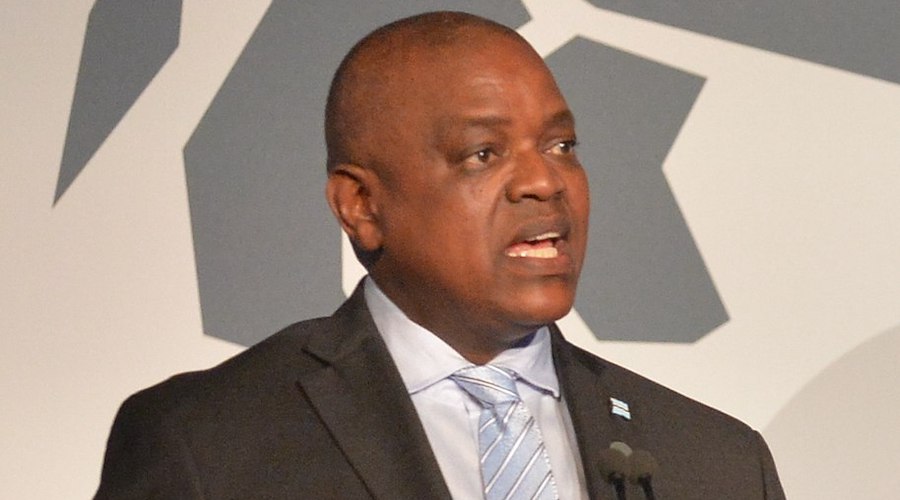
Botswana voters get rid of the party that has been in power for almost 60 years
Botswana’s voters shocked the party that had been in power for almost 60 years by voting for the opposition’s presidential candidate, Duma Boko. They did this to show their anger over economic slowdown caused by a drop in the diamond trade.
President Mokgweetsi Masisi, whose Botswana Democratic Party (BDP) lost by a huge margin for the first time in 58 years, gave up on Friday. He will be replaced by the 54-year-old member of the Umbrella for Democratic Change (UDC) alliance.
“From tomorrow… I will start the process of handover,” Masisi told Boko in a phone call that was shared on social media. This meant that the change of power would go smoothly.
In his first public speech after being sworn in as president, Boko said that the election results made him feel humble.
“With all my heart, I promise that I will do everything I can to not fail or disappoint, always taking into account the huge responsibility the people of this republic have given me.” “It’s their government,” he said.
Analysts say that the BDP’s downfall was caused by growing economic complaints, especially among young people. The BDP had been in charge of the southern African state with about 2.5 million people since it got its freedom from Britain in 1966.
Botswana, like many other African countries, has built its economy around exporting a single good: gems in this case.
Its leaders, unlike many others, have mostly refused the urge to steal or waste their commodity windfall. Instead, they have spent it on things like health care, education, and social benefits. The World Bank says that Botswana’s GDP per person was $7,250 in 2023, while the average for sub-Saharan Africa was $4,800.
But a drop in the price of diamonds around the world slowed down the economy this year, and it is now expected to grow by only 1%. At the same time, unemployment rose to 28%.
Botswana makes the most valuable diamonds in the world, and the government owns 15% of the diamond giant De Beers, which is part of Anglo American (AAL.L). Last year, Masisi talked to the company about giving it a bigger part of its rough diamonds.
We count on gems for our economy… We need to protect the goose that lays the golden egg for us at the very least in the short to middle run, Boko said.
He promised to get in touch with De Beers “as soon as possible” to hear what it had to say.
“As matters stand, they have been considering walking away, not signing at all, which is dire, (a) very dangerous position to be in as a country,” said he.
“NONETHING TO OFFER”
According to the local newspaper Mmegi, the UDC got 35 seats in parliament, which is four more than it needed for a majority. These seats came from 58 of the 61 districts. The leader is chosen by the party with the most votes. It was the last place for the BDP, which had only four seats.
A researcher from the Institute for Security Studies in Pretoria called the BDP “doesn’t have anything new to offer after 58 years in power.”
He said that the UDC, on the other hand, came up with bold policy ideas. It promised, among other things, to more than double the minimum wage, make social services better, and make the courts more independent.
Thursday and Friday were calm in Gaborone, the city. On Friday, small groups of people supporting the resistance were celebrating in the streets.
Mpho Mogorosi, a 23-year-old student, said, “I never thought this would happen in my life.” “The BDP had stayed too long … and I am proud to be part of the people that removed them.”
In southern Africa, the BDP was the second party in a long time to lose its majority at the polls this year. The first was South Africa’s African National Congress, which failed to get more than half of the votes for the first time in 30 years.
Namibia, a neighboring country, will hold elections later this month. The SWAPO party, which has been in power since 1990, is likely to face a tough fight there as well.
An Africa expert at Pangea-Risk said, “The results of Botswana’s elections should serve as a warning to long-time ruling parties across southern Africa and beyond that without economic progress and job opportunities, political dominance will weaken.”
All Categories
Recent Posts
Tags
+13162993331
zoneyetu@yahoo.com




